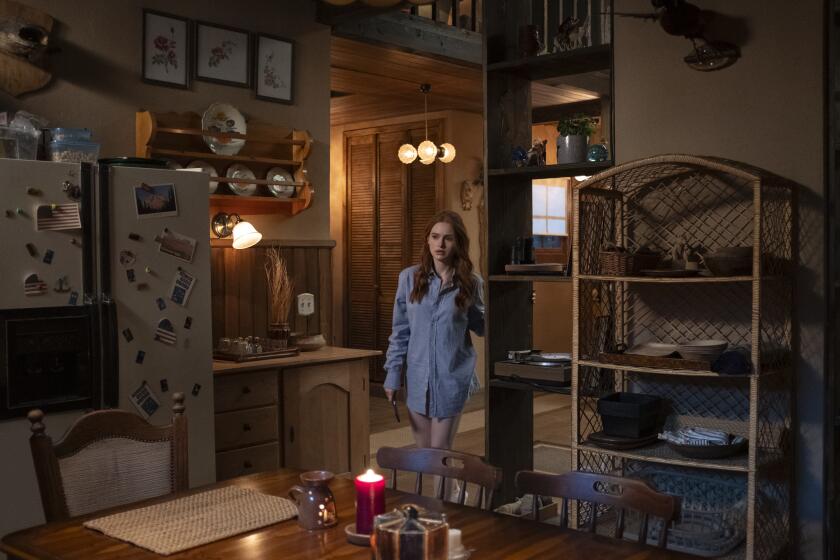Monsters of the Imagination
The scariest things can be conjured by our own imaginations because we can’t see them--monsters in the dark corners of childhood, sharks maybe lurking in the water, microscopic bacteria. Now add to that list the fear of terror, which can feed on itself and morph into panic. You don’t see such fretting in wild creatures, for instance, because they don’t know what death is. But on Sept. 11 we saw in disbelief, live on TV, more sudden death than on any other day in American history.
What also happened in those deadly, dusty moments was the sudden disintegration of our collective boundaries for the possible and the conceivable. A farfetched story in August about hijackers flying fuel-filled jetliners into skyscrapers and the immense buildings collapsing might have made an escapist opportunity to showcase cinematic special effects. Now that such acts are conceivable, that same scenario appalls and terrifies. Our absorbent minds immediately leap to: What else awful now might be conceived by evil, faraway men? Or their co-conspirators nearby? And who are they? Absent familiar boundaries, the human imagination once ignited by fear can make anything believable. Who can argue, after experiencing Sept. 11, that anything remains impossible?
And that, of course, is what terrorists count on. They cannot win a conventional military war because they’re so relatively few and suicidal. They cannot win a conventional battle of ideas. They cannot even win without our acquiescence to fear. And so with minimum effort terrorists seek to unleash the invisible and lethal germs of fear within our own minds. We’re asked to become complicit in their conspiracy against ourselves.
This creates a national unease punctuated by eruptions of irrationality, as a pained society haltingly assembles a rewritten set of boundaries. Emotional reconstruction takes determination and patience. The shock is especially difficult for Americans raised with the givens of territorial invulnerability and a right to long life. And so we fret, which originally meant to wear away by gnawing or rubbing. We feel mired in some continuous, disquieting national moving day in which every valued, old possession or emotional landmark is not where it should be, where we find new things strewn about and other items inexplicably broken but no guilty party at hand to confront.
Many fear flying now or venturing far from home. Tall buildings look like deathtraps, and envelopes become lethal weapons. Family members check in by phone for no particular but very understandable reasons. The neighborhood has changed and we’re unsure yet what or whom to trust. Or whether to trust.
One thing is sure as we reassemble our society’s shared expectations: We need to be suspicious of our suspicions, those dark fantasies that lurk within our minds and can lead a less confident society astray toward that destructive domain called every-person-for-himself.
More to Read
Only good movies
Get the Indie Focus newsletter, Mark Olsen's weekly guide to the world of cinema.
You may occasionally receive promotional content from the Los Angeles Times.






